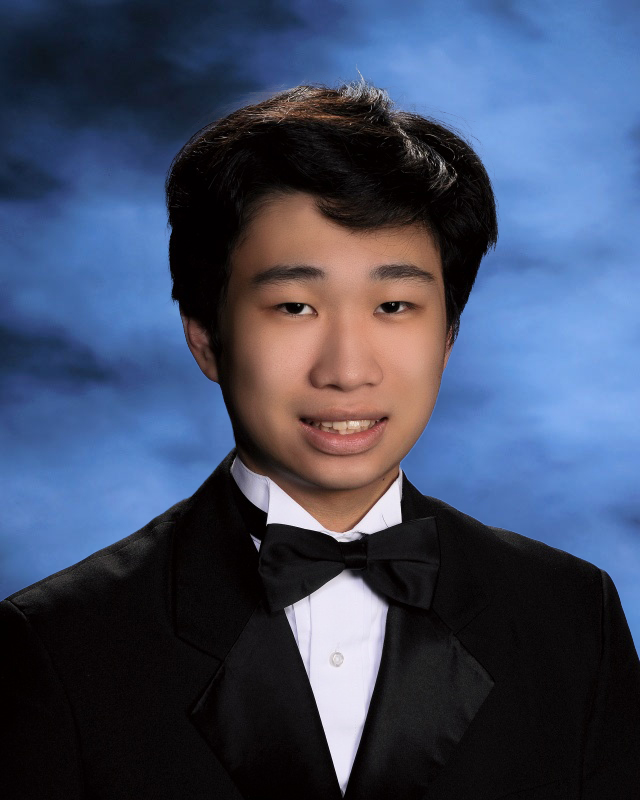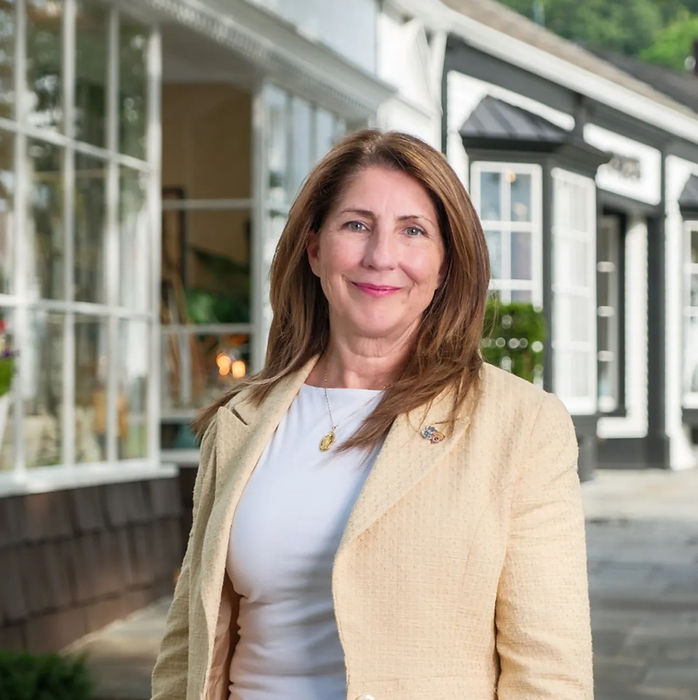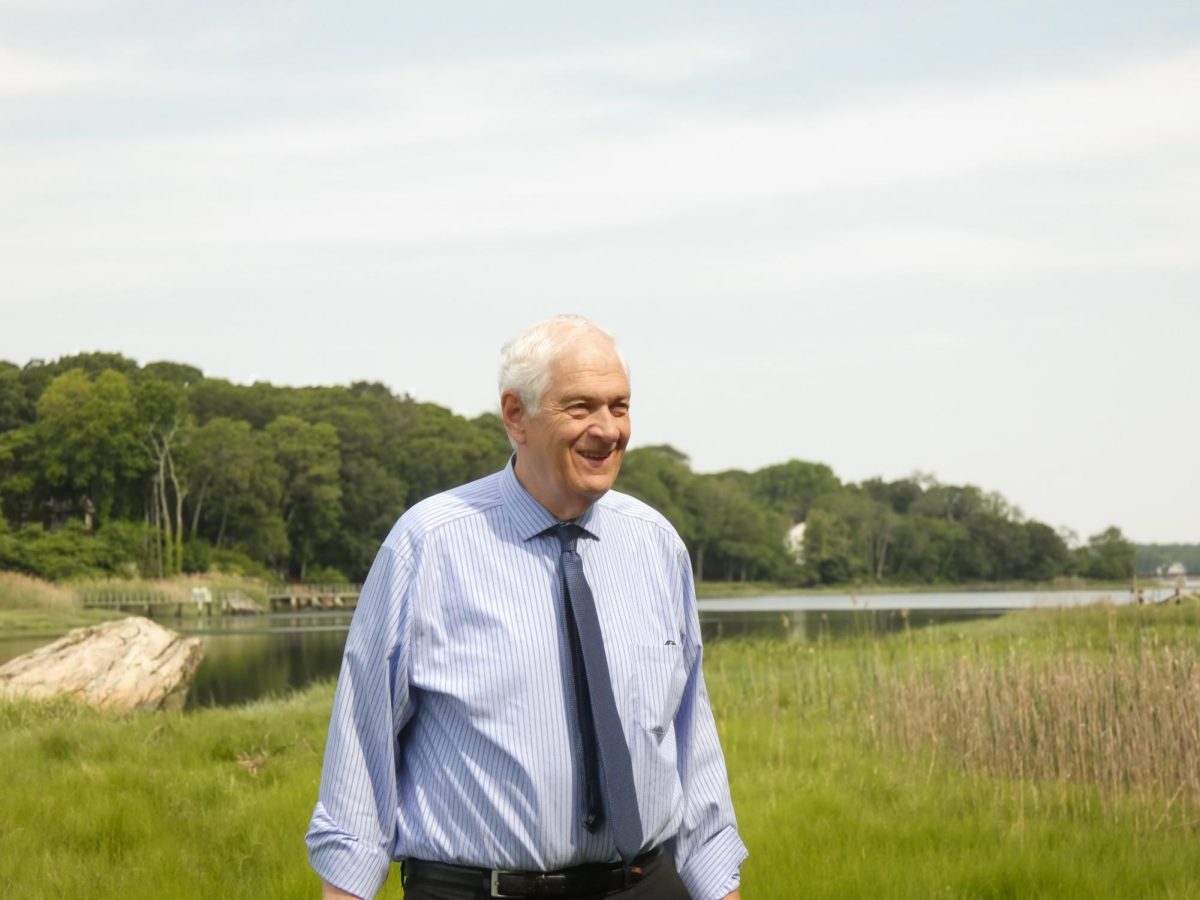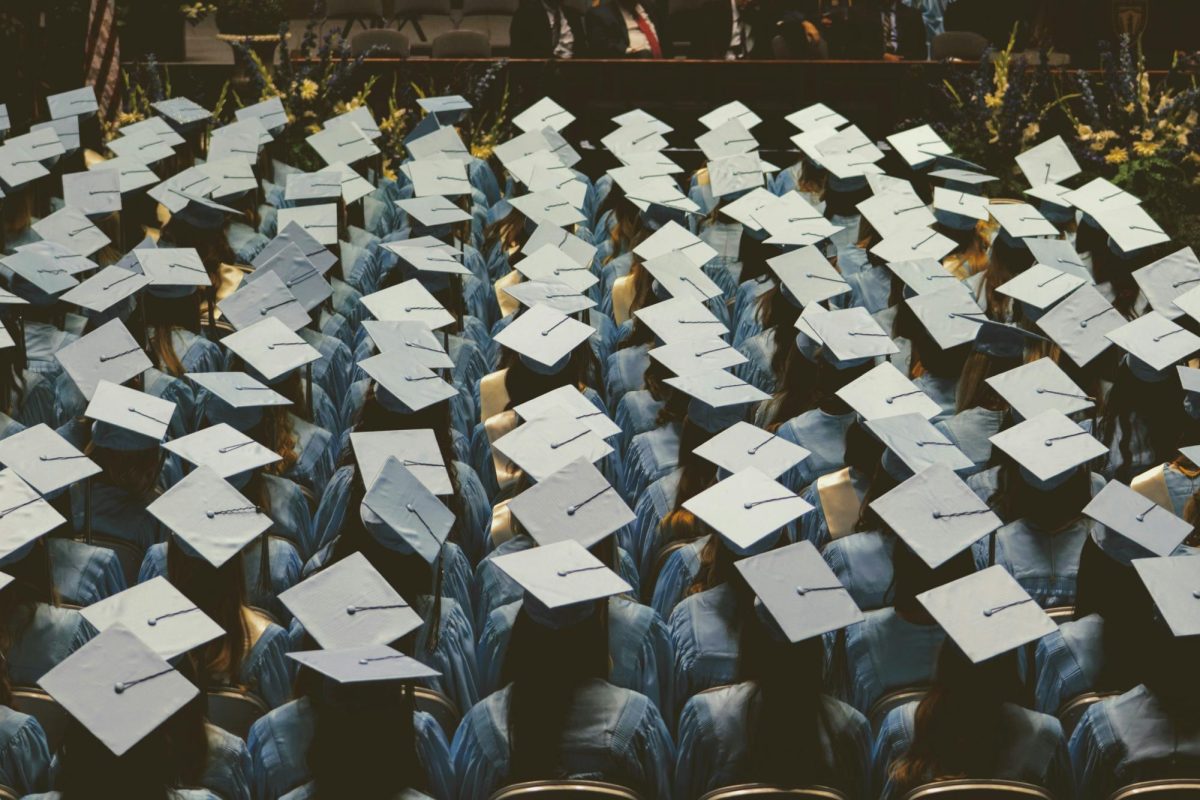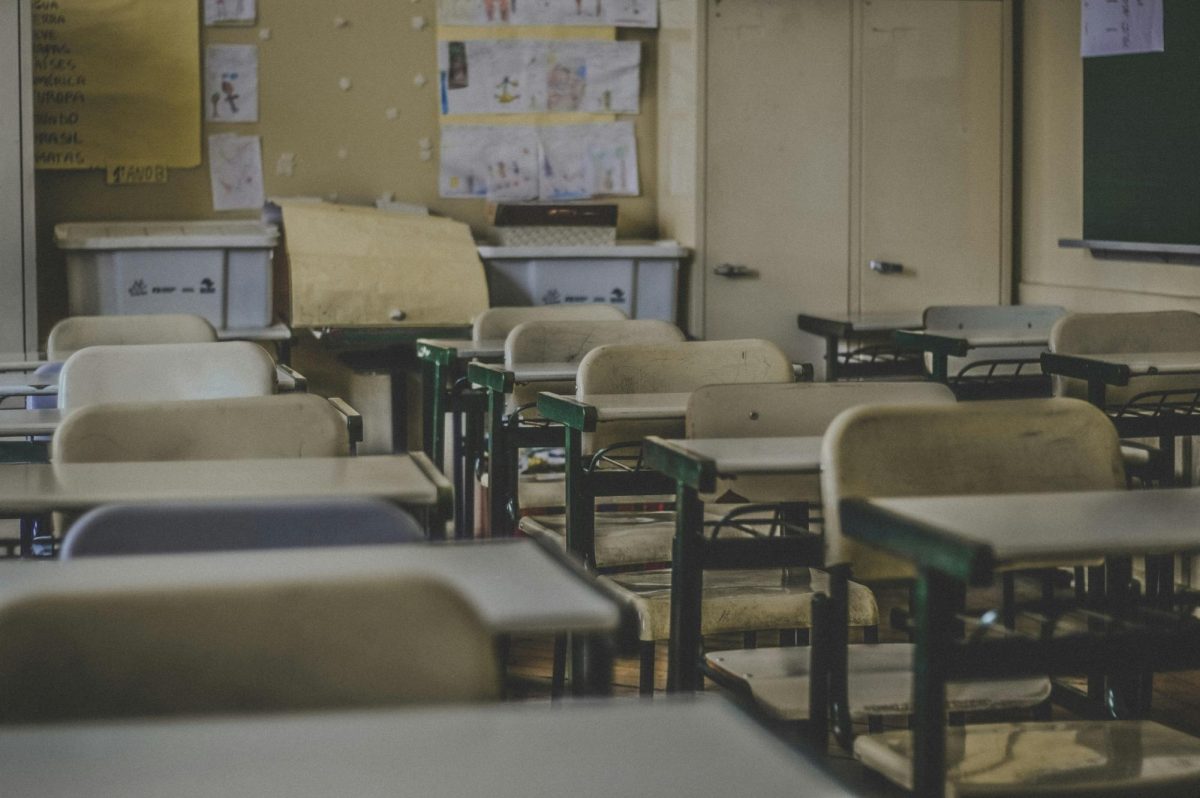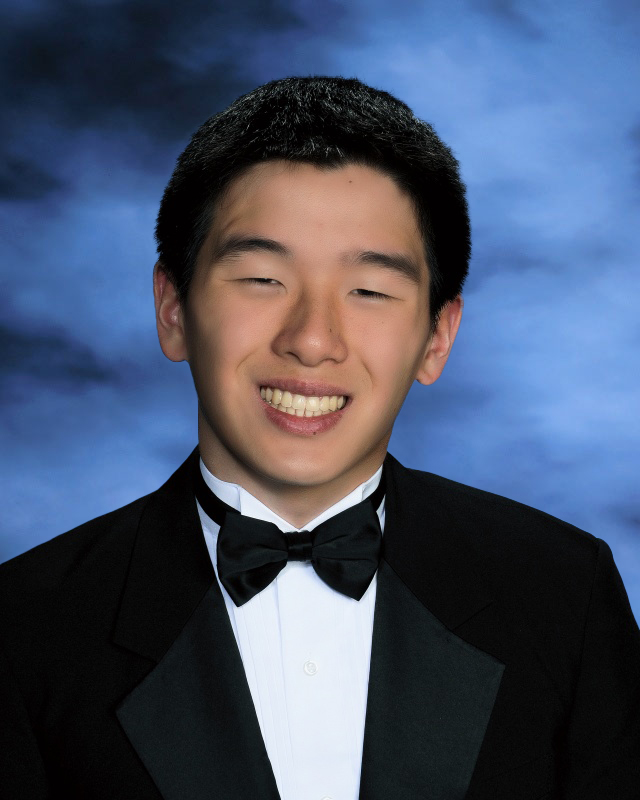This article was originally published in Kaleidoscope‘s Spring 2025 print edition. It is being published as a separate online article now for easy access.
I met with salutatorian Alexander Song on a sunny May afternoon at the start of Trustees Road, approaching the interview with an air of intimidation. I was unsure of exactly what to expect going into a conversation with someone so accomplished yet only a year older than me, but the barrier of anxiety was quickly broken down as he approached me with a friendly smile and welcoming demeanor.
Despite his academic achievements, Song is a remarkably humble individual who comes off as if he doesn’t take himself too seriously, consistently acknowledging the importance of finding community and building tangible, real-world experience instead of solely focusing on the seemingly all-powerful GPA, which is so highly valued by most students today. He speaks optimistically about his upcoming plans to attend UCLA in the fall and major in computer science, describing how moving to the West Coast was something he never thought he would do, but that it’s an opportunity he’s looking forward to taking advantage of. As for right now, Song is still discovering what exactly he wants to do with his newfound free time.
Going back to his childhood, Song says that one of the most impactful experiences of his early education was learning from his sixth grade teacher, Mr. Prinzo, after being placed in the Intellectually Gifted (IG) Program at Nassakeag Elementary School. He highlights the importance of how Mr. Prinzo “didn’t really care about the grades.” Remembering the open environment of the classroom, he reflects, “I think it was really one of the first times in which, in school, I was asked to not just do the homework. It was a place to discuss things, a place to think about things, even if it’s the really random things in your own life.”
From the beginning of our conversation, it was evident that robotics is Song’s greatest passion, and his proudest accomplishments at Ward Melville have been achieved as the co-captain of the Iron Patriots. He credits the robotics club for his discovery of his love for science and engineering, saying, “It introduced me to this whole new realm of what you can do with STEM.” He speaks very highly of the program offered to students at Ward Melville and emphasizes how much the team has changed and grown over the past couple of years. After an unsuccessful year for the team in 2023, Song describes how the group had to search for inspiration from other teams in order to adapt and improve their own methodology. He explains, “Essentially, from 2023 to 2024, we tried to quickly mold ourselves into a top team.”
His devotion to the team became increasingly evident as he explained in detail the intricacies and nuances of developing a robot and preparing for their annual competitions. He compares the work of the robotics team to running a small business, saying, “We have a product. We have deadlines and prototyping. We have to make a budget, which is a huge issue. We have to do PR, and we have to get money. But all of that is somehow encapsulated in this small high school club. I think that’s a kind of experience you really can’t get anywhere else.” He also stresses the role robotics has played in helping him find a community within Ward Melville. While the competitions only last from January to April, he explains that the team works tirelessly throughout the whole year to perfect their creation. He says, “We’re all so invested in winning and making a working robot and meeting deadlines. It creates a sense of community that I don’t think really exists in a lot of other clubs.”
Outside of robotics, Song is also a skilled violinist — a topic which he is slightly less outspoken about. Last spring, Song auditioned for the all-state music festival, a competitive program which selects the best musicians from across New York State for a performance in December. He was selected for the prestigious festival, and humbly looks back on the performance, saying, “They were all great musicians, so I didn’t have to do any heavy lifting.”
Despite his modest reflection on his role in the performance, he is undoubtedly a talented musician; Song has studied at the Manhattan School of Music Precollege ever since he first auditioned for the program in sixth grade. While he is still unsure how much of a role music will play in his college life, he acknowledges the unique part it has played throughout his education as one of the only non-STEM-related activities he has been committed to. He says music is a “great way of meeting people,” and has allowed him to “do something a lot different in terms of what [he does] academically.”
As we moved our discussion toward his college plans, Song spoke excitedly about the potential to explore a new city and get involved with some of the many exceptional programs UCLA has to offer. Specifically, he says he is interested in joining their Formula SAE team, where students can design and build formula-style race cars. While he will be moving on to new opportunities and challenges as he transitions to college, he will also remain connected to Ward Melville’s Iron Patriots. He says, “I’m still really attached to this team in many ways,” and explains that he wishes to follow in the footsteps of his former teammate Benjamin Paldy, who has also remained a mentor for the team since graduating from Ward Melville. As for his role in helping guide the team in the future, he says, “I’m still going to be helping them, especially with the design process and obviously warning them of the mistakes that they’re probably going to make anyway.”
In this intermediate period between high school and college, Song has run into a new problem that he has never previously dealt with: time for solely himself. He concedes that while he has experienced a sense of relief now that he faces less academic pressure, not having such a packed schedule is also “kind of disorienting.” “I think it’s a good problem. I think it’s a good place for me to be at this moment because I always had a little too much to do,” says Song.
Reflecting on his high school experience, Song expressed that he wishes he would have maintained a better balance between school and his outside life. When I asked about what he would do differently if he could redo high school, he shared, “I would take more advantage of the system and of what I can and can’t do, and be a little less straight on the line.”
Throughout our walk, I took note as Song intentionally smiled and waved at multiple young children as we passed by — some climbing in trees, others just walking with their parents. Although a small and simple gesture, I found this to be indicative of his character. Song is a compassionate individual who looks toward improving the future; he makes sure to leave every environment he is a part of better than he found it for future generations, whether it be the robotics team or the passersby of Trustees Road. After our conversation, I’m confident that Song will continue to have a positive impact on every community he involves himself in throughout his future endeavors.



